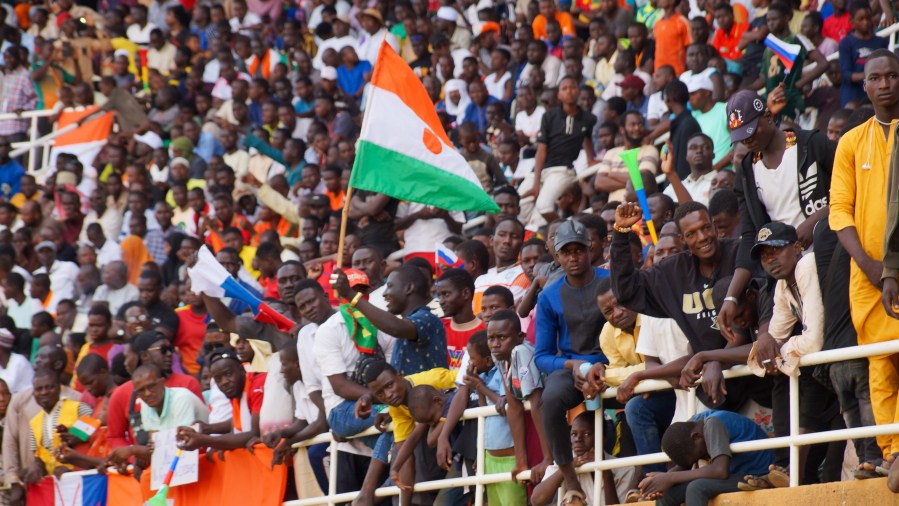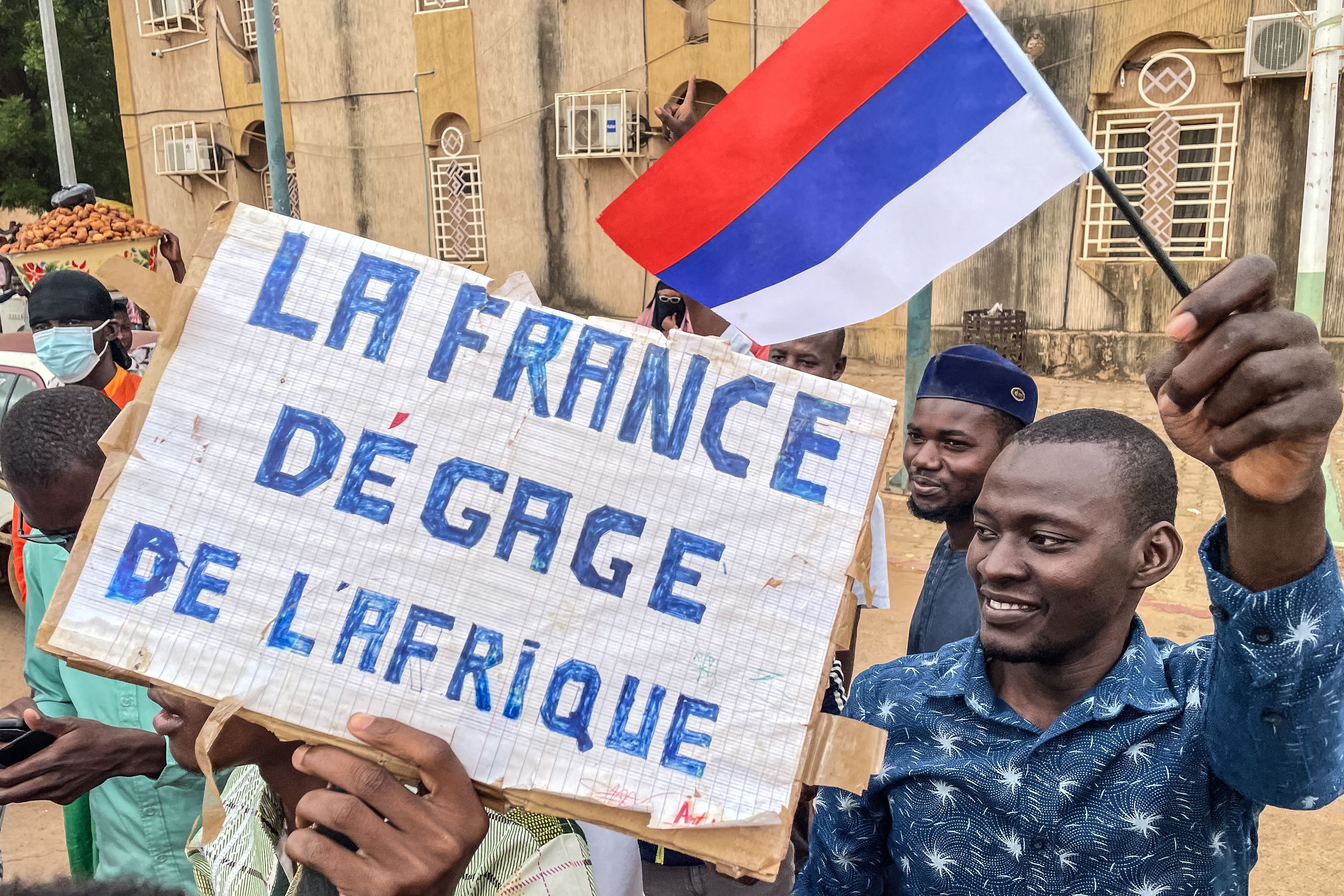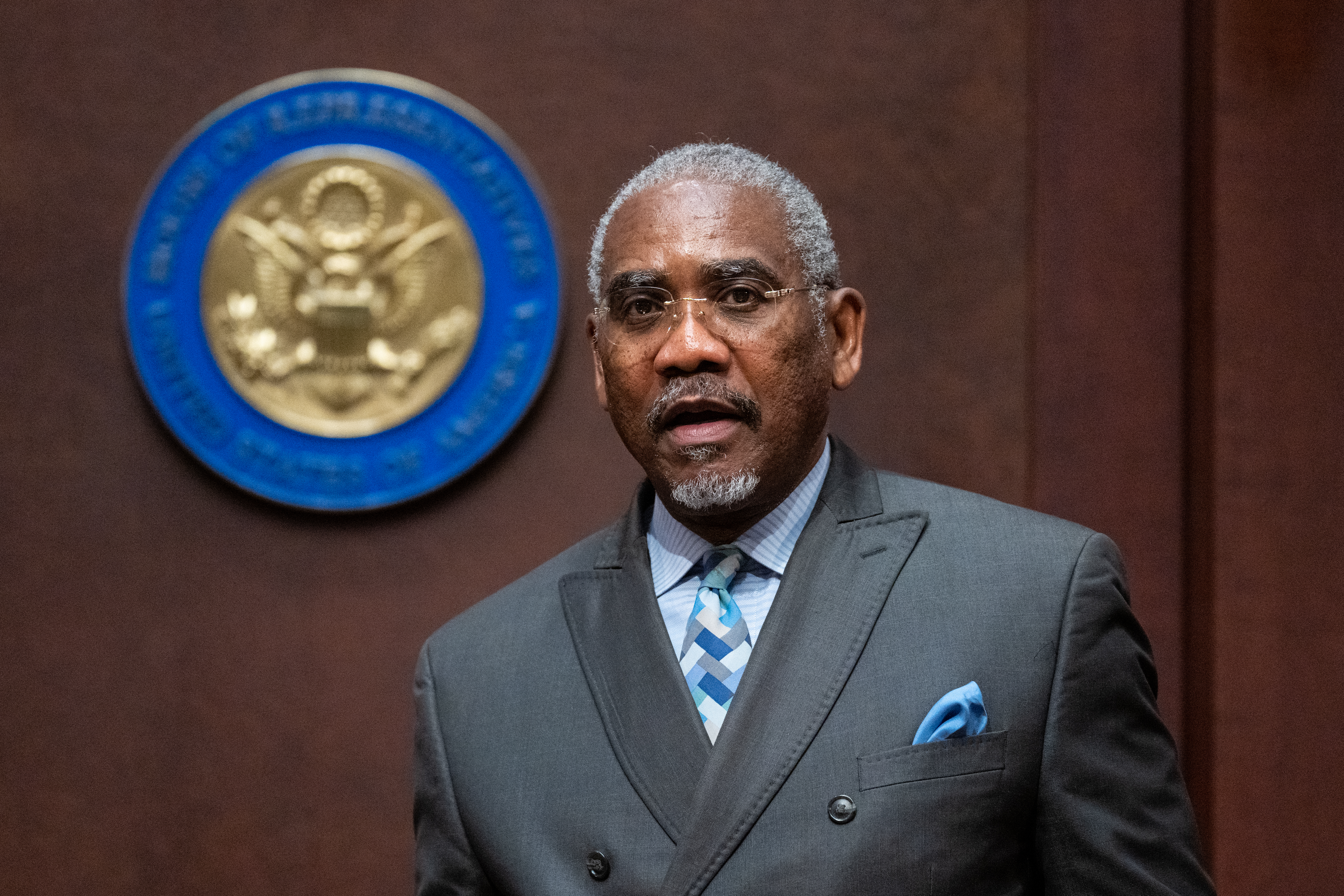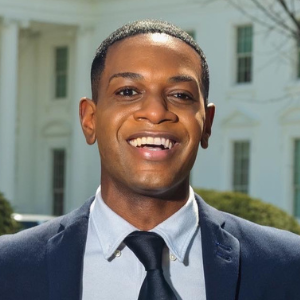Threat of coup in Niger exposes cracks in US-Africa policy
Beyond protecting democracy and the rule of law, experts say the United States must commit to a new level of The post Threat of coup in Niger exposes cracks in US-Africa policy appeared first on TheGrio.

Beyond protecting democracy and the rule of law, experts say the United States must commit to a new level of engagement to build a more prosperous Africa.
The escalating tension in Niger amid the military capture of its president is proving difficult for the United States and its Western allies, exposing historical and present cracks in their relationships in Africa.
On the surface, the potential coup of President Mohamed Bazoum is fueling tension driven by growing national insecurity and increasing worry over threats to the global state of democracy. Peeling back the layers, however, it’s far more complex.

As the United States weighs halting financial aid to Niger in the event of a coup, economic insecurity continues to plague the impoverished West African nation that has also seen increased terrorism activity over the years.
More broadly, the July 26 capture of Bazoum inside his presidential palace exposed divisions among its citizens about the state of Niger and cracks in the broader mission of the United States and its allies to strengthen relationships in Africa and advance democracy. It also highlights the ongoing geopolitical war between the West and Russia, which also has complicated but significant ties on the continent.
“This is a really big moment,” said Joseph Tolton, a Pan-African activist and executive director of the advocacy group Interconnected Justice. He told theGrio that it is an opportunity for the U.S. and international partners to, beyond protecting democracy and the rule of law, commit to a level of engagement that will “build a kind of Africa that [Africans] want to live in.”
The fact that thousands of Nigerien citizens took to the streets in support of a military coup signals the fragility of democracy in a region where several military coups have been successful and where animosity grows toward Niger’s former colonizer, France, and by extension, its allies like the U.S. Nothing is more indicative of that fact than the attack on the French embassy in Niger and the Russian flags waved by pro-military coup demonstrators over the weekend.

Due to high poverty rates in the world’s third-poorest country, a severe lack of electricity, and grave food and national insecurity for the people of Niger, Tolton said, “It’s easy for their hearts to then be captured by the militants who facilitated the coup and easy for them to then say…let’s look to Russia.” He added, “It’s about looking to anybody who has their interests at heart.”
Despite calls for Niger to return to civilian rule and restore power to its democratically elected president, junta leaders remained “quite firm” in their mission to hold Bazoum and his family captive inside the presidential palace while they forged ahead under military rule, according to acting Deputy Secretary of State Victoria Nuland, who traveled to Niger on Monday.
During a press briefing, Nuland said military leaders refused to allow her and other U.S. officials to meet Bazoum in person during their diplomatic visit. She condemned the takeover as undemocratic and said it does not “comport with the constitution” of Niger.

The geopolitical sensitivity in the region is why the ranking member of the House Committee on Foreign Affairs, Rep. Gregory Meeks, D-N.Y., said he welcomes mediation efforts led by the Economic Community of West African States (ECOWAS), a political and economic union of 15 countries in West Africa.
“It’s significant and important to have ECOWAS, other African countries in the region…negotiating hopefully to…bring back President Bazoum to the presidency,” Meeks told theGrio.
ECOWAS, chaired by the president of Nigeria, Bola Tinubu, threatened military action if military leaders in Niger did not restore power to Bazoum. Meeks described the leadership of ECOWAS as “encouraging” and “inspiring.”
However, the military leaders, led by Gen. Abdourahamane Tiani, defied the Aug. 6 deadline set by the African bloc and appeared undeterred despite the threat of France and the U.S. pulling financial aid and thousands of military troops deployed to assist with counterterrorism operations.
“It makes it hard for countries like the United States to…prevent terrorism in various areas when you don’t have trusted individuals and systems and institutions that are in place,” Meeks said of the consequences of instability in the region. Ultimately, he said, the crisis in Niger is about the “hard-fought democratic gains won by the people of Niger.”

Tolton cautioned the U.S. government about approaching Niger and other African nations from a policy-first perspective. He draws a distinction between U.S.-Africa policy, which was renewed last year during President Joe Biden’s U.S.-Africa Leaders Summit, and U.S. engagement in Africa.
“Our engagement in Africa should always start with how this will impact the people of Africa, particularly the young people of Africa,” said Tolton.
“Africa as a huge consumer market should be foremost in our minds,” he explained. The continent, he said, will “determine what happens with the Fourth Industrial Revolution because all of the raw materials that we need to power our economy are in Africa.”
Tolton added, “If our sense of how we engage with Africa does not always inform and drive our policy, I think that that will prove to continue to be problematic for us.”
Western countries like the U.S. and France “perpetuate all the negative stereotypes in terms of how it relates to Africa,” said Tolton. He continued, “The reciprocity must always be on the front end of our relationships because we have such a negative history to overcome.”
Meeks agreed that the U.S. improving its engagement and continuing to invest resources is crucial to building a more secure and advanced Africa. He said there are opportunities such as connecting Africans with African-American-owned businesses in energy and education.
“They want us present,” the congressman said of African leaders he met with as a member of the Foreign Affairs Committee. He warned, “If we’re not doing these things, then it leaves it open [and] they have no choice but to look to a Russia or to a China.”
African nations “know that they get a better deal and better product” when dealing with the United States, said Meeks.
“Africa is the youngest and the fastest-growing continent,” he added. “And when you talk about the future, the future lies on the continent of Africa.”

Gerren Keith Gaynor is a White House Correspondent and the Managing Editor of Politics at theGrio. He is based in Washington, D.C.
TheGrio is FREE on your TV via Apple TV, Amazon Fire, Roku and Android TV. Also, please download theGrio mobile apps today!
The post Threat of coup in Niger exposes cracks in US-Africa policy appeared first on TheGrio.












